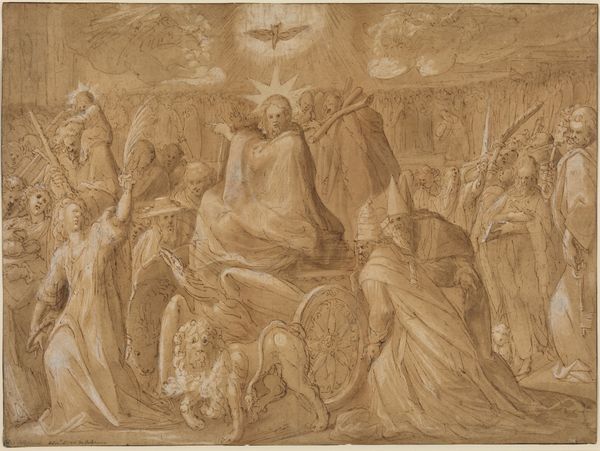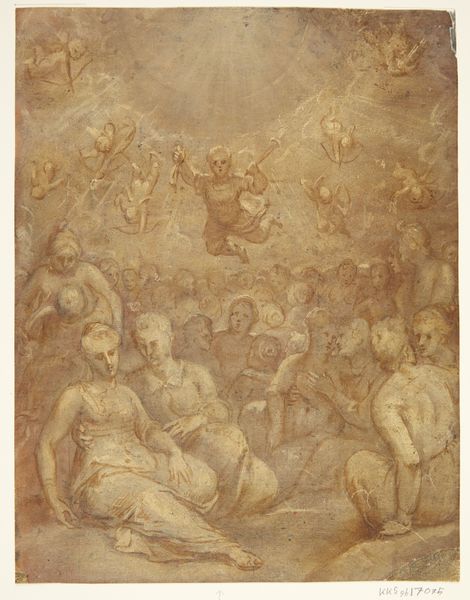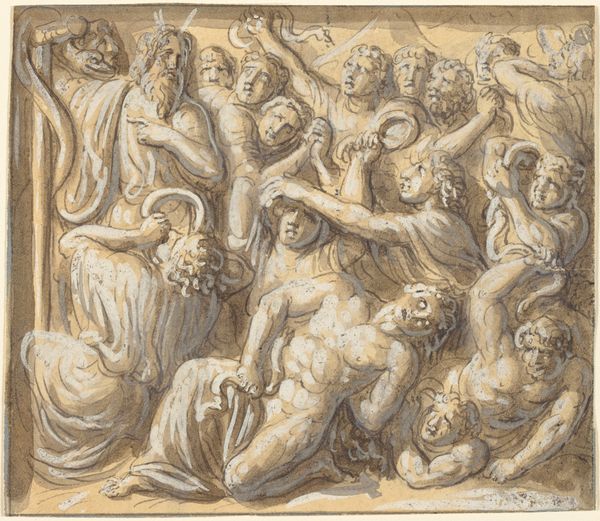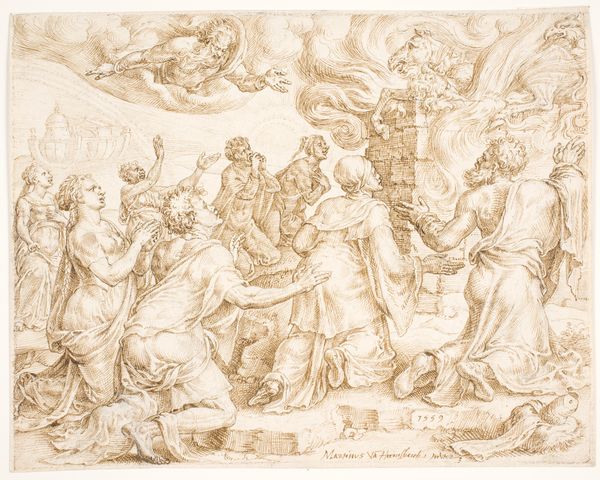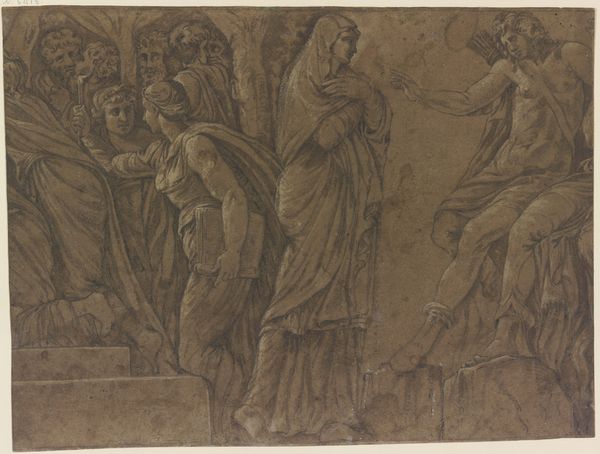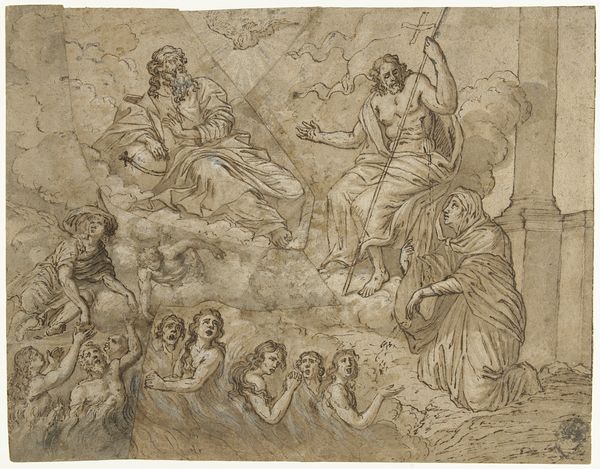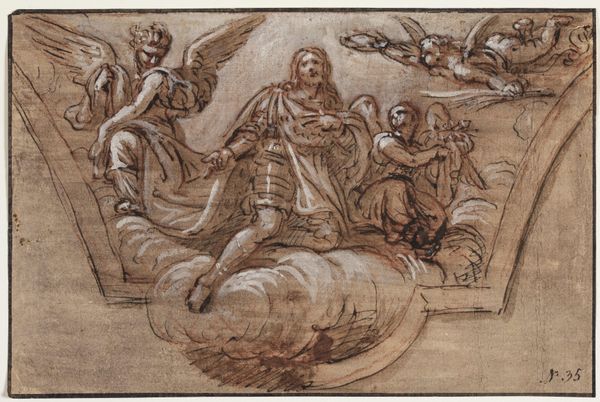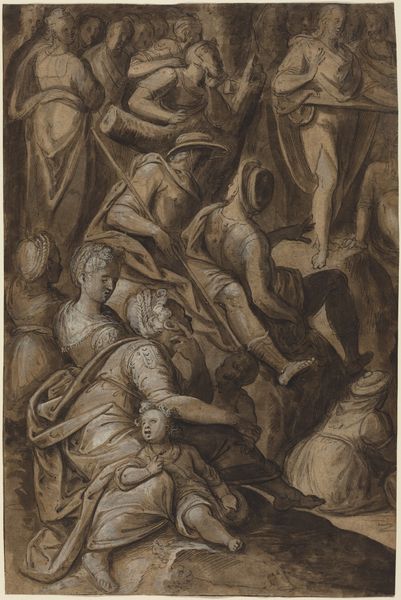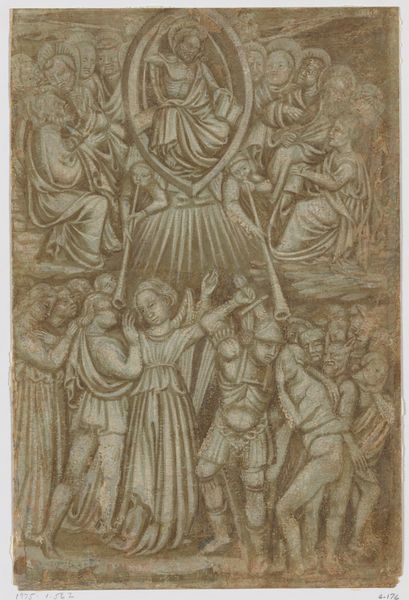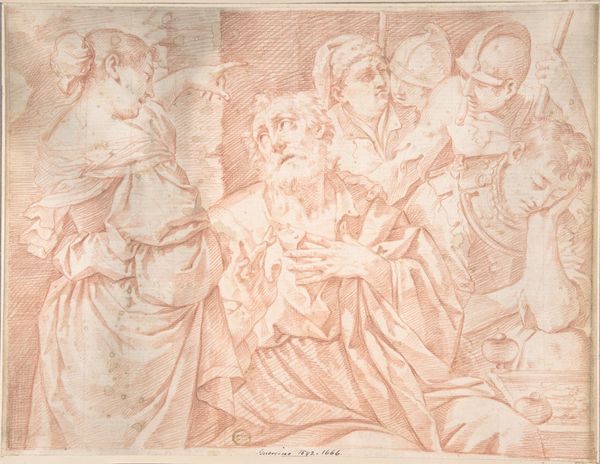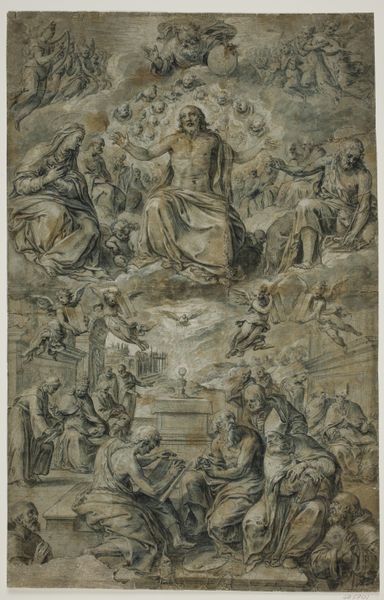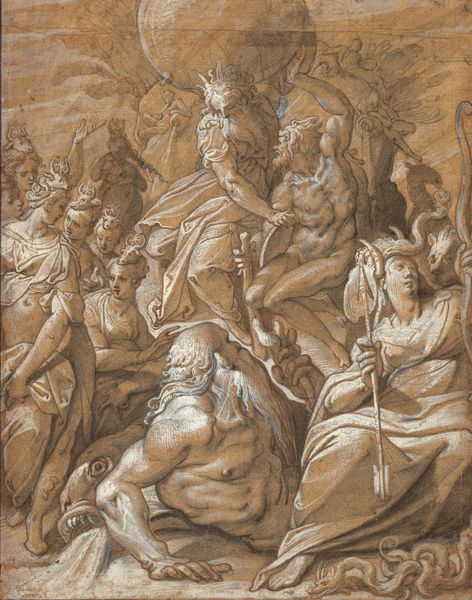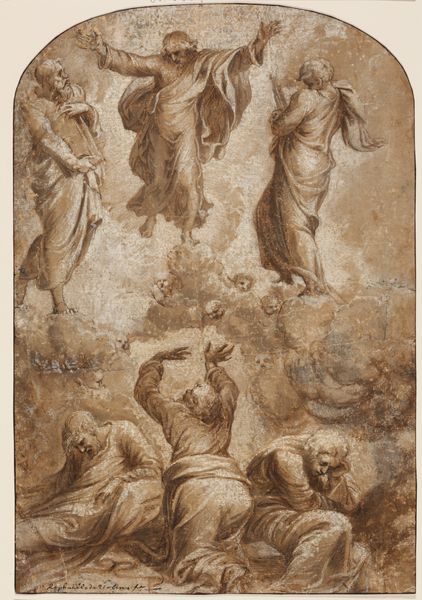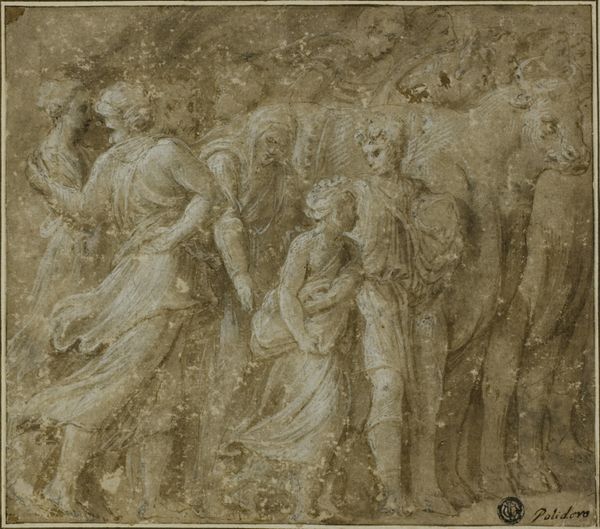
drawing, print, ink, pen, charcoal
#
portrait
#
drawing
#
byzantine-art
#
toned paper
# print
#
landscape
#
charcoal drawing
#
figuration
#
11_renaissance
#
ink
#
orientalism
#
men
#
pen
#
genre-painting
#
charcoal
#
history-painting
#
academic-art
#
christ
Dimensions: sheet: 6 1/4 x 7 1/4 in. (15.8 x 18.4 cm)
Copyright: Public Domain
Hans Stutte rendered "Christ’s Entry into Jerusalem" with pen and brown ink, heightened with white, on paper in the 17th century. The materiality here is unassuming: not paint on canvas, or bronze, but a humble drawing. Yet, the way Stutte coaxes the scene into being from these basic materials is remarkable. See how the brown ink establishes the contours, but it's the white heightening that gives the composition its volume and dynamism. This isn't just a drawing; it's a performance of light, rendered through a meticulous layering of tones. Drawings like this one served multiple purposes in the 17th century. They were studies for larger paintings, independent works of art, and teaching tools. They circulated within a network of artists and collectors, allowing for the exchange of ideas and techniques. The work involved wasn't just about technical skill. It was about understanding the flow of images and the networks of patronage that sustained artistic production during the period. This modest drawing demonstrates the power of a seemingly simple medium to convey complex ideas and social relationships.
Comments
No comments
Be the first to comment and join the conversation on the ultimate creative platform.
